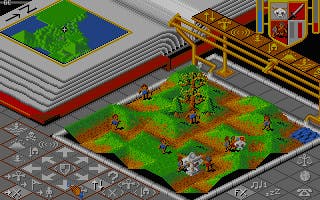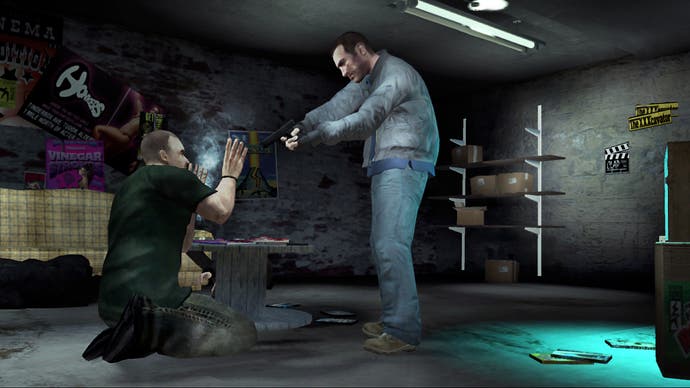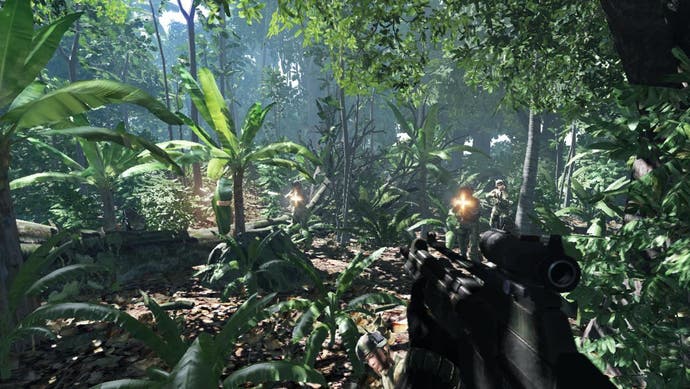Electronic Arts: Back In The Game
Has EA really changed?
The other cost of EA's success was less obvious, but perhaps even more important - EA lost the respect of gaming's core consumers. Madden, FIFA and their ilk would sell like hotcakes anyway, and movie-licensed titles sold to an audience that never ventured onto forums or read the specialist press - but in other respects, the perception of EA as the Evil Empire, a shovelware operation that had no regard for quality or innovation, hurt the company terribly. It hampered efforts to create original IP, created hostility among the key consumers who act as opinion-formers for their peer groups, and even hurt the company's recruitment efforts. Most of those who want to work in videogames are, after all, gamers.
Moreover, EA's reputation wasn't entirely undeserved. Aside from its policy of annual updates to key franchises - resented by more hardcore gamers for charging customers for very minor tweaks to the formula - EA had also managed to absorb and subsequently kill off many of the most creative and beloved game development studios in the world, forging a reputation as a acquisitive behemoth that squashed innovation and creativity under layers of corporate drudgery.

The hitlist is depressing. Origin Systems, developers of the Ultima series. Bullfrog, super-talented British creators of gems such as Populous, Magic Carpet, Theme Park and many others. Maxis, creators of Sim City and its subsequent spin-offs. Westwood Studios, who practically invented the real-time strategy genre and created Command & Conquer.
Of course, EA itself would argue - quite convincingly - that not all of those acquisitions were mishandled, or all of those studio cultures squashed. Origin, after all, went on to develop and release Ultima Online as part of EA, while Maxis is still theoretically in existence - and its top creative mind, Will Wright, is working on EA's much-anticipated Spore. To gamers, however, EA seemed like the industry's answer to Star Trek's evil Borg, assimilating diverse cultures and stripping them of their individuality.
The New Deal
It's no wonder, then, that the gaming world groaned loudly when Electronic Arts bought a little-known investment vehicle called VG Holding Corp - a firm which happened to be the parent company for two of the industry's most respected and well-loved contemporary development studios, Pandemic and Bioware. Nor is it a surprise that there's been such a negative reaction to EA's most recent acquisition efforts - its attempt to buy Take-Two, the publisher behind the Grand Theft Auto franchise.

However, such reactions may not be entirely justified - at least, not any more. EA has spent the past year changing and reinventing itself. After years when it seemed content to sit back and churn out annual updates and movie licences, EA has been brought up short by a stagnation of its income - at a time when its development expenses have skyrocketed.
With the Lord of the Rings franchise all but finished and the end in sight for Harry Potter, with the strength of the Wii creating huge challenges for the cross-platform strategy that saw EA happily through the past half-decade, and with other publishers merging or bulking up to rival EA's might, some change was inevitable. When John Riccitiello returned to EA in early 2007 after a three-year absence (during which time he co-founded Elevation Partners, an investment firm that bought Bioware and Pandemic after failing to acquire Eidos), change was arguably long overdue.
Since his installation as CEO, however, Riccitiello's appetite for change has been undeniable. His objective appears to be a complete overhaul of EA's attitudes to everything from acquisitions to development - building an environment in which original IP can be created, innovative concepts can be explored and creative studios that have been brought in from outside can thrive, rather than being suffocated. If that all sounds like common sense to any gamer, then that's exactly why it's so unusual - and so positive - to see it coming from the man in charge of Electronic Arts.

Within EA, the single largest change Riccitiello's stewardship has brought about so far is the re-organisation of development into four major labels - huge "silos" inside the company that reflect the markets the company wants to tap into. The Sims gets a label all to itself, while EA Sports, EA Casual (for mainstream games) and EA Games (for headline, AAA titles) are all divided off from one another into other labels. The idea is to give proper focus to the firm's development efforts.
By all accounts, it's working - not least in its ability to easily accommodate acquisitions. As managing director of Elevation Partners (which owned VG Holding, which in turn owned Bioware and Pandemic), Riccitiello could practically have brought the two top-flight developers with him on the day he first sat down again on the EA throne. Instead, the deal was done eight or nine months later - long enough for the labels to be in place, and for Riccitiello to be confident that the studios would be allowed to go about the business of making games without having EA middle managers stepping on their patch and messing things up.
